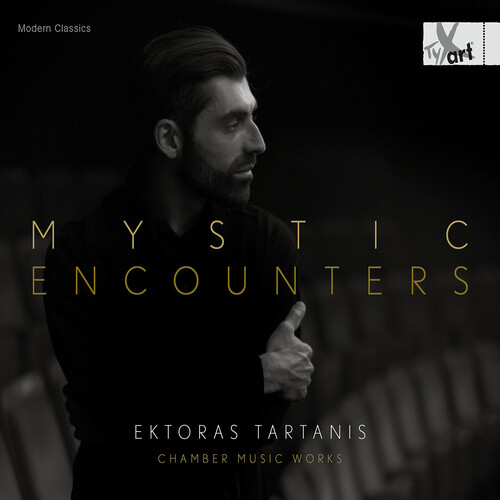Show results for
Deals
- 4K Ultra HD Sale
- Action Sale
- Alternative Rock Sale
- Anime sale
- Award Winners Sale
- Bear Family Sale
- Blu ray Sale
- Blues on Sale
- British Sale
- Classical Music Sale
- Comedy Music Sale
- Comedy Sale
- Country Sale
- Criterion Sale
- Electronic Music sale
- Fantasy Film and TV
- Folk Music Sale
- Hard Rock and Metal Sale
- Horror Sci fi Sale
- Jazz Sale
- Kids and Family Music sale
- Kids and Family Sale
- Metal Sale
- Music Video Sale
- Musicals on Sale
- Mystery Sale
- Naxos Label Sale
- Olive Films on Sale
- Page to Screen Sale
- Paramount Sale
- Pop and Power Pop
- Rap and Hip Hop Sale
- Reggae Sale
- Rock and Pop Sale
- Rock Legends
- Soul Music Sale
- TV Sale
- TV Sale
- Vinyl on Sale
- War Films and Westerns on Sale

Tartanis: Mystic Encounters – Chamber Music Works
- Format: CD
- Release Date: 7/5/2024

Tartanis: Mystic Encounters – Chamber Music Works
- Format: CD
- Release Date: 7/5/2024
- Composers: Ektoras Tartanis
- Label: Tyxart
- UPC: 4250702801900
- Item #: 2649079X
- Genre: Classical Artists
- Release Date: 7/5/2024

Product Notes
Programme music as chamber music? There is an obvious common denominator between Greek mythology and Paul Celan's poetry: mysticism. Whether consciously or unconsciously, this element seems to give my personal cultural roots the appropriate musical expression. If one asks what exactly is meant to be expressed here and whether the titles and subtitles of the two chamber music works should be understood as program music, then a very specific artistic credo will be revealed. Greek mythology and philosophy form the foundation of my world view and at the same time my intellectual background. These myths and legends are not simple stories, but rather a code that needs to be deciphered - just like Japanese haikus, over which one can meditate for years - in order to achieve a deeper understanding of the world and human nature. In this respect, this music can be understood programmatic, but not in the sense of an approximate retelling of stories in mere tones; but rather as music aiming to reveal a deeper level of understanding in giving birth to the meaning of the underlying myth and bringing it emotionally closer to the listener. In this sense, the virtuoso piano work is entitled "The Lost Nereid". The Nereids were beautiful sea nymphs who beguiled people with their songs and could make the sea storm or pacify. In the Greek Kabbalah, the element of water represents the "feeling". How would one of those Nereids sing today, if she had lost herself from that archaic time to the present day? How would her song sound like in the turbulent world of ours, in which aesthetic values - if they exist at all - are entirely subjective? What feeling would it evoke and what lost beauty would it want to remind us of? he sonata for bassoon and piano, entitled "The Horae" deals with one of the three Horae in each individual movement: "Eunomia", "Diki" and "Eirini". "Horae" translates to "hours". These three goddesses were the constant companions of Aphrodite, the goddess of beauty. Their names thus display qualities that are directly linked to beauty or reveal that divine beauty to us humans, when we fill every "hour" of our lives with them - namely with "Good Law", "Justice" and finally with "Peace". Each of the three movements has it's own musical and formal character and uses the entire range of expression of both instruments as well as their technical possibilities.

